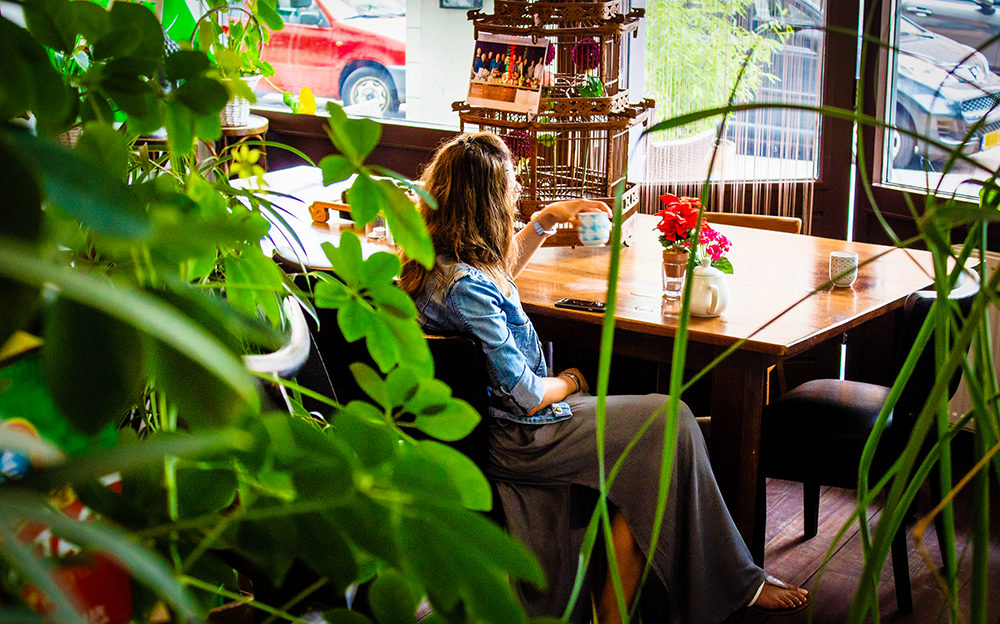
by Connie Hernandez, ND
Dr. Marcel and I opened our first naturopathic practice in Brattleboro, Vermont in the early 1990s.
Our clinic was situated in a classic New England home. The living room was our waiting area – it centered on a lovely old fireplace, and full-spectrum lights shone forth from under the reception desk to chase away the cold-weather blues that tended to accompany the gray Vermont skies.
Shoes weren’t allowed in the clinic – we provided slippers for our patients. Even the UPS delivery people had to shed their muddy boots at the door and sit for a spell with a cup of tea.
In those remarkably simpler times, our patients were salt-of-the-earth farmers and their families, seeking remedies for stings and rashes, tinctures for colds, relief for the minor ailments of childhood, or dietary change for lipid issues.
Local herbalists gathered fresh herbs for us and harvested and roasted the dandelion root we used in our liver support teas.
Many of our patients came for what is now called “lifestyle medicine.” These foks were essentially well and were generally experiencing physical and mental well-being.
They sought by natural means to maintain optimal health, forestall degenerative diseases, and treat whatever ailed them.
We made heavy use of hydrotherapy, homeopathy, nutritional and botanical medicines, and plain Down East common sense.
These days, our patients come to us with a very different variety of ailments that include autoimmune disorders, anxiety, cancer, and complex and mysterious syndromes with names, but no known cures.
They describe their problems in sophisticated language. They’ll talk eloquently about their MTHFR gene, SIBO, or high hemoglobin A1c.
Often they’ll hand us un-interpreted test results from multiple specialty labs, and bags of supplements they’ve found online or through one internet doc or another.
“Dr. Google” rules the day! And all of this widely disseminated information is quite well and good. We’re fortunate to have access to a wide spectrum of dietary options, to see the worlds within worlds that increasingly sophisticated technologies have revealed to us, and to be able to access nutrients specific to unique biochemical processes.
These amazing options may help eradicate a diagnosable disease or optimize one small but very specific physiological parameter of health.
But sadly, the result may not be true wellness or well-being. Just as we can lose sight of the forest when we’re focused too closely on the trees, we can all too easily lose sight of the whole person when we forego the art of medicine for the science of medicine.
Where is true wellness and well-being, when the whole person is lost in the equation?
Wellness and well-being are in the forest. They are in the wholeness of the person, in the unity of body and mind and spirit, in our inner and outer relationships, and in the balance of deficiency and excess.
The qualities of true well-being include an expansive heart, a habit of gratefulness, a positive outlook, willingness, curiosity, adaptability, resilience, and happiness – any or all of them may contribute to true well-being, even in the face of the most serious health circumstances.
It surely helps to be physically and mentally sound, and to be filled with energy to accomplish what we want and need to do. We all aspire to a state of raw physical and mental wellness.
But it’s possible to experience true well-being even in the presence of a truly horrific disease. Ironically, the door to long-term improvements in our overall well-being may be opened by an absolutely dismal diagnosis.
Among the wide spectrum of our patients, we find that our cancer patients are surprisingly often able to describe themselves as well and happy and grateful. Even as they are actively pursuing a cure for their physical condition, they have surrendered, in their own unique way, to a higher, benevolent power, and their hearts have opened to a greatly expanded reality.
We are deeply awed when we stand in the presence of these people and the true inner well-being they are experiencing.
Of course, we most assuredly don’t need to experience serious disease to move into well-being.
Nurturing our highest spiritual aspirations can definitely help. When we begin to follow a true spiritual path, our perspective broadens and becomes more universal and inclusive, less self-centered, and more accepting. We become happier and more grateful. And this is true well-being.
For information about the services we offer at Pacific Naturopathic, please give us a call at 650-961-1660, use the convenient Contact Form to get in touch, or follow the link to: Consultations – Pacific Naturopathic. Thank you!
